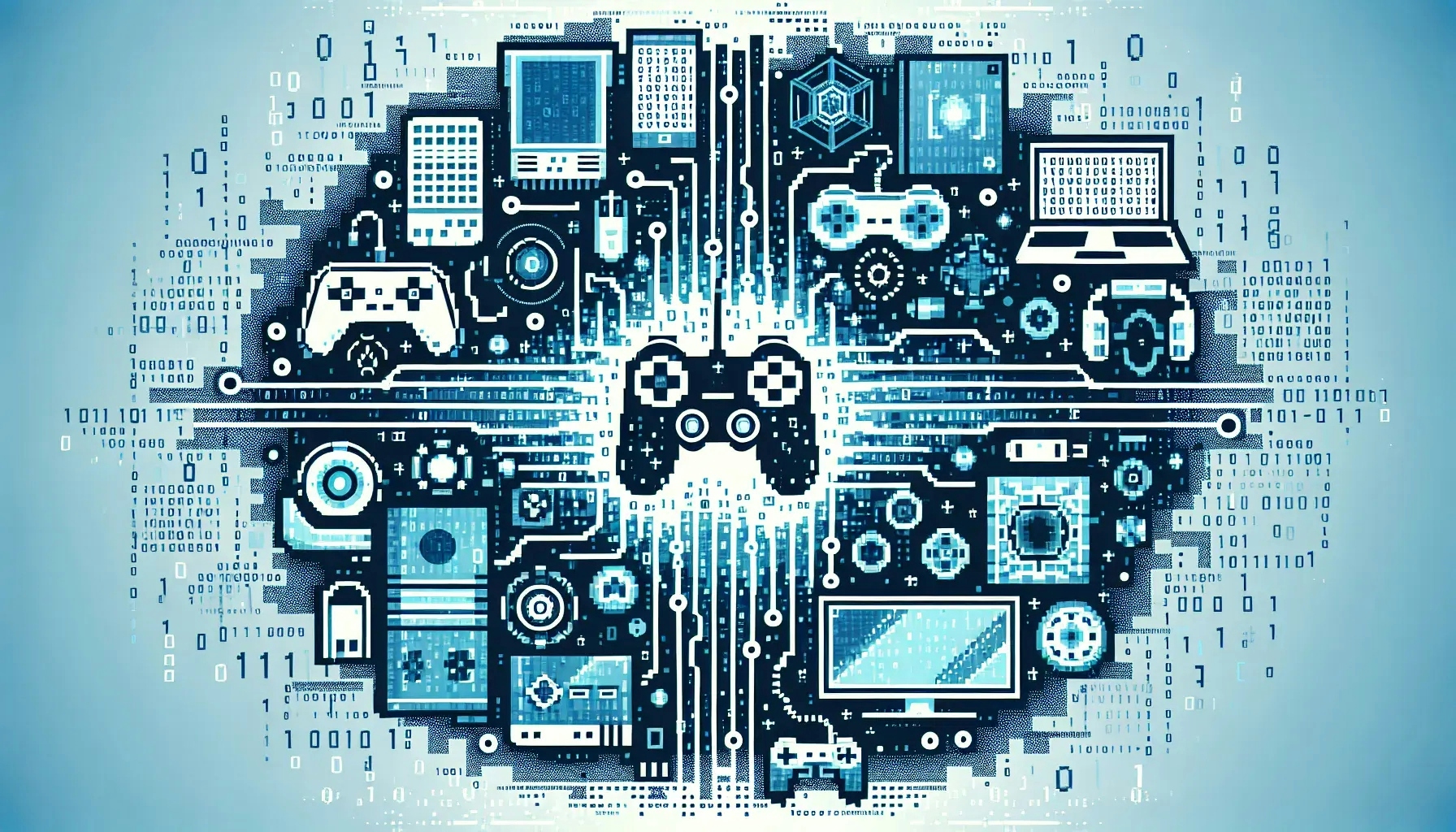Dealing With Computer Game Addiction
ComputerGames.io

Computer game addiction, a modern-day issue, is increasingly becoming a concern for many. This blog post aims to provide practical strategies for dealing with this form of addiction. We will delve into understanding the nature of the addiction, its impact, and effective ways to manage and overcome it.
Understanding Computer Game Addiction
Computer game addiction, like any other addiction, is a compulsive behavior that takes precedence over other activities. It's a phenomenon that can affect anyone, regardless of age or gender. The addiction can be so intense that it interferes with a person's daily life, causing them to neglect their responsibilities and relationships.
The first step towards dealing with computer game addiction is recognizing the problem. It's important to understand that excessive gaming is not a mere hobby, but a serious issue that can have significant consequences. It can lead to physical health problems like obesity and carpal tunnel syndrome, and mental health issues such as depression and anxiety.
Recognizing the signs of computer game addiction is crucial. These may include spending excessive time playing games, neglecting personal and professional responsibilities, and experiencing withdrawal symptoms when not playing. If you or someone you know exhibits these signs, it's time to take action.
Impact of Computer Game Addiction
The impact of computer game addiction can be far-reaching, affecting various aspects of a person's life. It can lead to physical health issues, mental health problems, and social isolation.
Physical health problems can arise from prolonged periods of inactivity and poor posture. These can include obesity, carpal tunnel syndrome, and other musculoskeletal issues. Additionally, excessive screen time can lead to eye strain and sleep disorders.
Mental health issues are also a significant concern. Excessive gaming can lead to depression, anxiety, and low self-esteem. It can also cause feelings of restlessness and irritability when not playing.
Social isolation is another major impact of computer game addiction. Individuals may withdraw from family, friends, and social activities, preferring to spend their time gaming. This can lead to a breakdown in relationships and a lack of social skills.
Strategies for Managing Computer Game Addiction
Managing computer game addiction requires a multi-faceted approach. This includes setting limits, finding alternative activities, seeking professional help, and creating a support network.
Setting limits on gaming time is a crucial first step. This can be achieved by creating a schedule that includes time for gaming, but also time for other activities. It's important to stick to this schedule and gradually reduce gaming time.
Finding alternative activities can help to fill the time previously spent gaming. These activities should be enjoyable and engaging, and can include hobbies, sports, or social activities.
Seeking professional help can be beneficial, particularly for severe cases of addiction. This can include therapy or counseling, and in some cases, medication may be recommended.
Creating a support network is also important. This can include family, friends, or support groups. Having people who understand and support the journey towards recovery can make a significant difference.
Overcoming Computer Game Addiction
Overcoming computer game addiction is a journey that requires commitment and perseverance. It's important to remember that recovery is a process, and it's okay to have setbacks along the way.
One effective strategy is to gradually reduce gaming time. This can be achieved by setting realistic goals and slowly working towards them. It's important to celebrate small victories along the way, as this can boost motivation and confidence.
Another strategy is to replace gaming with other activities. This can include hobbies, sports, or social activities. These activities should be enjoyable and engaging, and can help to fill the void left by gaming.
Seeking professional help can also be beneficial. Therapists or counselors can provide strategies and techniques to manage cravings and avoid relapses. In some cases, medication may be recommended.
The Role of Family and Friends in Recovery
The support of family and friends can play a crucial role in the recovery process. They can provide emotional support, encourage healthy behaviors, and help to keep the individual accountable.
Family and friends can help by setting boundaries and enforcing gaming limits. They can also encourage participation in other activities, and provide positive reinforcement for progress made.
It's important for family and friends to be patient and understanding. Recovery is a process, and it can take time. It's also important to remember that relapses can occur, and it's crucial to provide support and encouragement during these times.
Maintaining Recovery from Computer Game Addiction
Maintaining recovery from computer game addiction requires ongoing effort. It's important to continue practicing healthy behaviors, even after overcoming the addiction.
This can include continuing to set limits on gaming time, participating in alternative activities, and maintaining a support network. Regular check-ins with a therapist or counselor can also be beneficial.
It's also important to be aware of potential triggers and develop strategies to manage them. This can include avoiding certain games or gaming environments, and having a plan in place for dealing with cravings.
Wrapping Up: Overcoming Computer Game Addiction
Dealing with computer game addiction is a challenging journey, but with the right strategies and support, it's entirely possible to overcome. Recognizing the problem, understanding its impact, and implementing effective management strategies are crucial steps towards recovery. Remember, it's a process, and it's okay to have setbacks along the way. With commitment, perseverance, and the right support, overcoming computer game addiction is achievable.